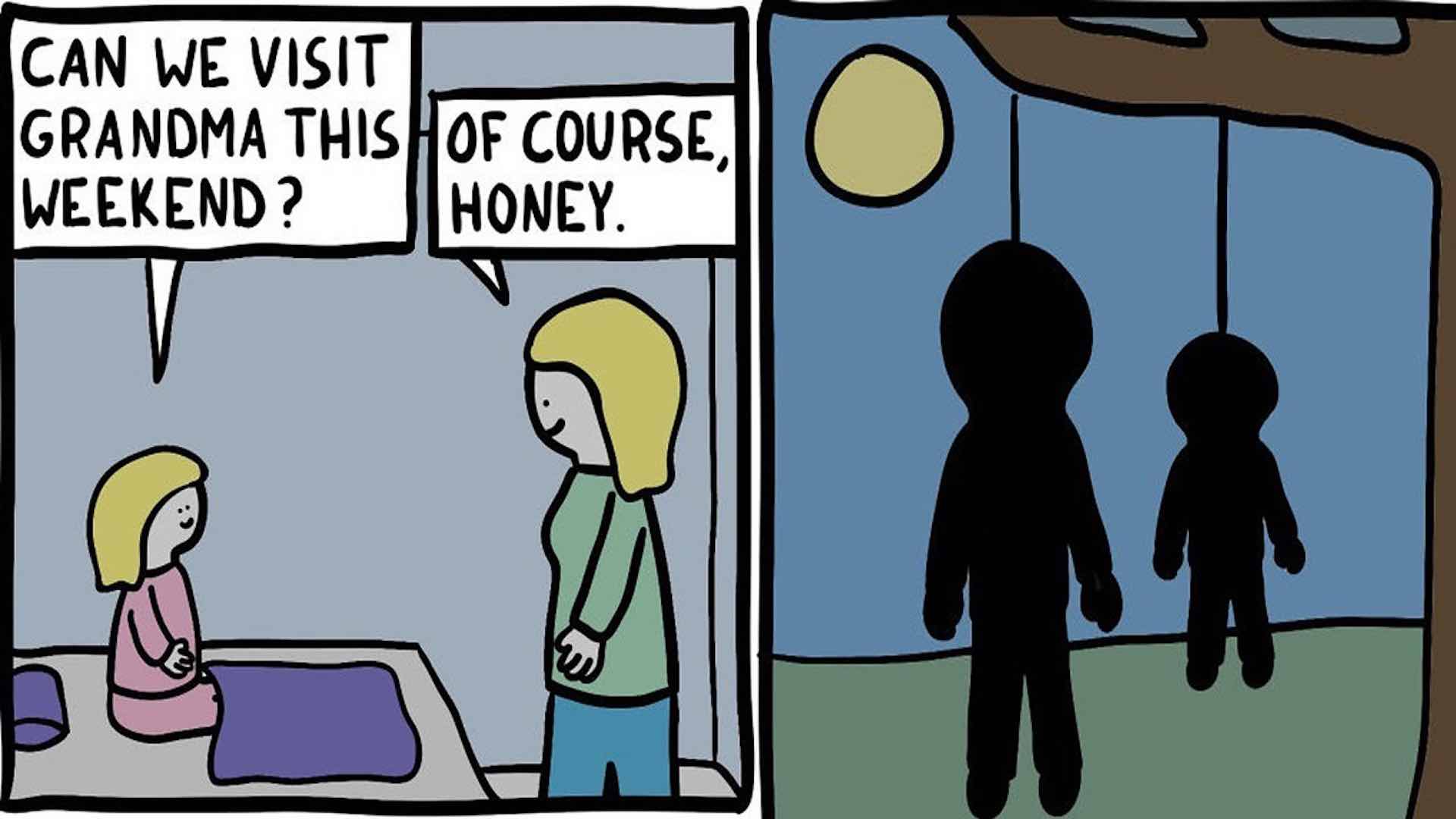Understanding The Balance Between Laughter And Sensitivity

Dark humor is a fascinating genre of comedy that traverses the thin line between laughter and discomfort. It challenges societal norms and pushes boundaries, often eliciting mixed reactions from audiences. In this article, we will explore the depths of dark humor, its origins, implications, and why it garners both admiration and criticism. From understanding its psychological impact to examining how it manifests in various forms of media, we will delve into the complexities that make dark humor a unique yet controversial aspect of comedy.
As we navigate through the nuances of dark humor, it is essential to recognize its role as a coping mechanism for many individuals. People often turn to humor as a way to deal with life's harsh realities, and dark humor offers a way to confront difficult subjects while still finding a semblance of lightness. This article aims to provide a comprehensive overview of dark humor, even touching on its ethical considerations and potential pitfalls.
By the end of this article, you will have a deeper understanding of what dark humor is, why it resonates with some while repelling others, and how it continues to evolve in our society. Join us as we embark on this exploration of laughter that dances with the shadows.
Table of Contents
What is Dark Humor?
Dark humor, often referred to as black comedy, is a style of humor that finds comedy in subjects that are generally considered serious, taboo, or distressing. This type of humor often involves making light of topics such as death, illness, and tragedy. While it can be controversial, many find it liberating, allowing them to laugh at what is typically considered off-limits.
Characteristics of Dark Humor
- Involves taboo subjects
- Challenges societal norms
- Often uses irony and sarcasm
- Can provoke discomfort while eliciting laughter
The History of Dark Humor
The origins of dark humor can be traced back to ancient times, where humor often served as a means of coping with the harsh realities of life. From the tragedies of Greek theater to the biting satire of medieval jesters, dark humor has always found a place in cultural expressions.
Key Historical Moments
- Greek Tragedy: Use of humor to explore human flaws
- Shakespeare: Incorporation of dark themes in plays
- 20th Century: Rise of dark humor in stand-up comedy
Psychological Aspects of Dark Humor
Dark humor often serves as a psychological tool, allowing individuals to confront fears and anxieties in a safe environment. By laughing at serious topics, people can distance themselves from their emotional responses, making it easier to process difficult experiences.
Theories Behind Dark Humor
- Incongruity Theory: Humor arises from the unexpected juxtaposition of serious and lighthearted elements.
- Relief Theory: Laughter serves as a release of pent-up emotions associated with fear and anxiety.
Dark humor is prevalent in various forms of media, including films, television shows, and literature. It often serves as a commentary on societal issues, pushing audiences to reflect on uncomfortable truths.
Notable Examples
- Television: Shows like "The Office" and "It's Always Sunny in Philadelphia" use dark humor to explore taboo topics.
- Films: Movies such as "Dr. Strangelove" and "The Addams Family" utilize dark humor to critique societal norms.
Ethical Considerations of Dark Humor
While dark humor can be a powerful tool for social commentary, it also raises ethical questions about sensitivity and respect. What one person finds funny, another may find deeply offensive, leading to debates about the limits of humor.
Debates Surrounding Dark Humor
- Is it ever acceptable to joke about tragedy?
- How do cultural differences impact perceptions of dark humor?
Dark Humor as a Coping Mechanism
Many individuals use dark humor as a form of coping during difficult times. By finding humor in their struggles, they can create a sense of control and resilience in the face of adversity.
Benefits of Dark Humor for Coping
- Provides a sense of relief from stress
- Encourages open conversations about difficult topics
- Fosters community among those who share similar experiences
Famous Dark Humorists
Throughout history, several comedians and writers have become known for their dark humor. Their work often challenges societal norms and provokes thought while eliciting laughter.
Notable Figures
- George Carlin: Known for his irreverent takes on social issues
- Louis C.K.: His comedy often delves into uncomfortable truths
- David Chappelle: Explores race and identity through dark humor
Conclusion
In conclusion, dark humor serves as a complex and multifaceted aspect of comedy that can provoke thought while offering relief. While it may not be everyone's cup of tea, it plays a vital role in how we process and confront the more difficult aspects of life. As we continue to navigate the intricacies of humor, it is essential to balance laughter with sensitivity, understanding that what brings joy to one may not resonate the same way with another. Join the conversation and share your thoughts on dark humor in the comments below!
Final Thoughts
Thank you for exploring the intriguing world of dark humor with us. We hope this article has shed light on its complexities and sparked your interest in further discussions. Don't forget to check out our other articles for more insights into the world of comedy and culture. Come back soon!
ncG1vNJzZmivmaC2b7XSrJirrZKWe6S7zGiqsKGWqbCivtNqaGickae4brTUpqarZpipuq0%3D